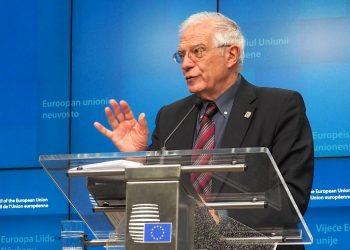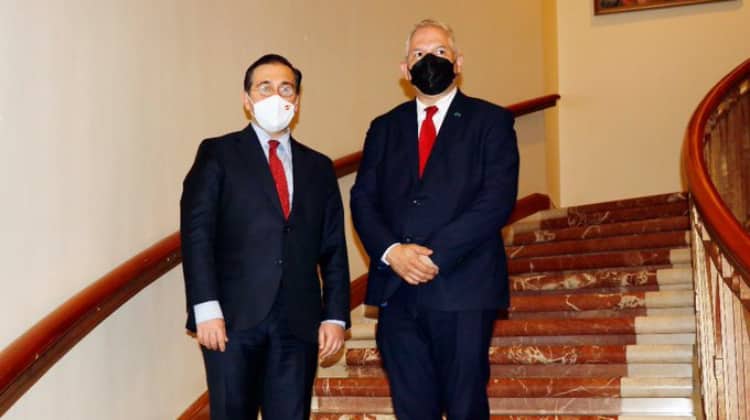The Diplomat
The European External Action Service (EEAS) will request information from the Spanish authorities on the sale of arms to Turkey to confirm that it complies with the conditions set by the European Union, according to a question asked by the MEP and former president of the Generalitat of Catalonia, Carles Puigdemont.
The leader of Junts raised doubts about the coherence with the European common position of the military collaboration, announced by the government of Pedro Sánchez, with Ankara within the Spanish-Turkish summit last November. He was also concerned about the national security implications for EU members such as Greece and Cyprus.
At the end of that summit, Turkish President Recep Tayyip Erdogan expressed his desire to build a new aircraft carrier as well as a submarine in collaboration with the Spanish company Navantia, which is already assisting in the construction of a smaller aircraft carrier in Turkey.
In its response to Puigdemont, the EEAS recalls that member states are obliged to follow the EU’s position on security and the arms trade treaty, although the “final decision” on authorizing exports lies with member state authorities.
“It is up to the competent national authority to assess applications for export licenses against the criteria of the – EU – common position, including respect for human rights and international humanitarian law by the country of final destination, as well as the potential effect of the export on the defense and security interests of Member States, friends and allies”, the response from the EU diplomacy, which Josep Borrell heads, states.
The agreement with Ankara has already cost Sanchez criticism and formal protests from the Greek government and the Greek Socialist Party, which expressed its concern about arms going to a country that acts as a destabilizing factor in the Mediterranean.
A few weeks later, the Minister of Foreign Affairs, José Manuel Albares, traveled to Greece to try to calm Athens’ unease and emphasize Spain’s support for “constructive dialogue between Greece and Turkey” and the “search for solutions in accordance with international law”.







